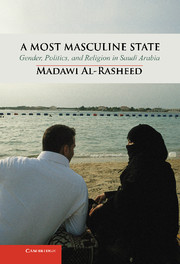Book contents
- Frontmatter
- Contents
- Acknowledgments
- Introduction
- 1 From Religious Revival to Religious Nationalism
- 2 Schooling Women
- 3 Symbols of Piety
- 4 The Quest for Cosmopolitan Modernity
- 5 Women in Search of Themselves
- 6 Celebrity Women Novelists and the Cosmopolitan Fantasy
- 7 Guarding Self and Nation
- Conclusion
- Glossary
- Bibliography
- Index
- References
4 - The Quest for Cosmopolitan Modernity
Published online by Cambridge University Press: 05 February 2013
- Frontmatter
- Contents
- Acknowledgments
- Introduction
- 1 From Religious Revival to Religious Nationalism
- 2 Schooling Women
- 3 Symbols of Piety
- 4 The Quest for Cosmopolitan Modernity
- 5 Women in Search of Themselves
- 6 Celebrity Women Novelists and the Cosmopolitan Fantasy
- 7 Guarding Self and Nation
- Conclusion
- Glossary
- Bibliography
- Index
- References
Summary
The glorification of the feminine character implies the humiliation of all who bear it.
Theodor AdornoThe publication of my photo in the press angered me a lot. I do not know where they found it. I have been asked for a photo but I refused. I am a Saudi Najdi monaqaba [one who wears niqab] and I do not accept the press publishing my photos.
Mrs Nura al-Faiz, Deputy Minister of EducationSince 9/11, educated women have been called upon to serve the state's economic, social, and ideological needs. Educated women give the regime a soft and sophisticated modern face. While invisible Saudi women had previously been visible signs of state piety, their recent orchestrated and well-managed appearance in the public sphere is a reflection of the state's quest for a cosmopolitan modernity. Under global and local political pressures, the state is gradually replacing religious scholars in defining gender roles and the status of women in the country. The state singles out gender as a criterion for its new modernity, thus inaugurating a new era that requires the celebration of the achievements of Saudi women and their greater participation in the public sphere.
- Type
- Chapter
- Information
- A Most Masculine StateGender, Politics and Religion in Saudi Arabia, pp. 134 - 174Publisher: Cambridge University PressPrint publication year: 2013



